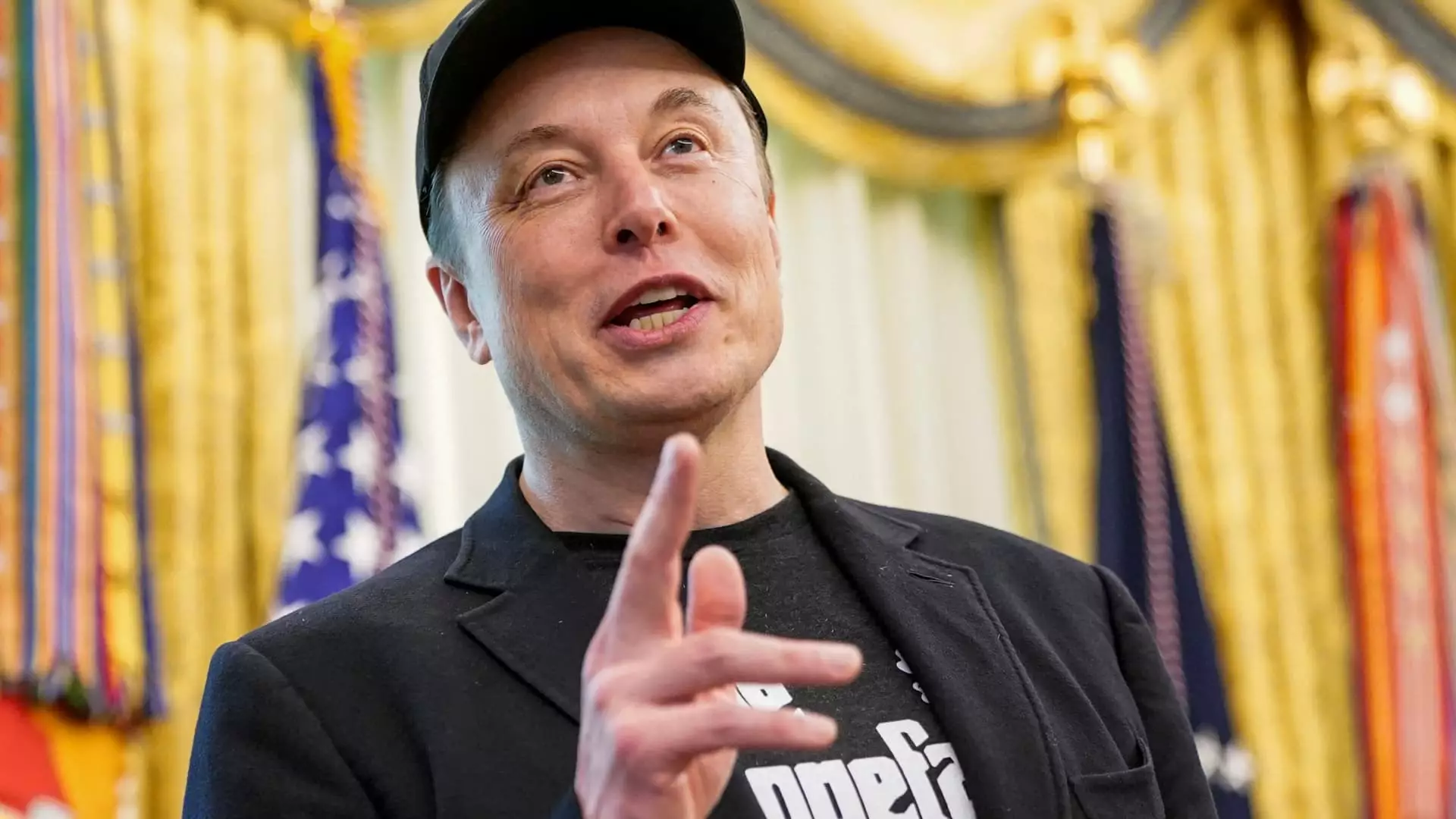In a stunning display of discontent, Elon Musk, the founder of Tesla and SpaceX, let loose with a blistering critique of a substantial tax-and-spending bill championed by former President Donald Trump. Describing it as a “disgusting abomination,” Musk voiced concerns that resonate with many fiscal conservatives and anarchists alike. His pointed rebuke was not merely casual banter; it was a clarion call that underscored a significant malaise in American politics: the acceptance of financial recklessness by elected officials cloaked in the guise of economic progress.
Musk’s criticism carries weight not only due to his wealth but also because it reflects a growing unease about governmental fiscal behavior. In an age where the average American grapples with wage stagnation and rising costs, the luxury of debt accrual seems less appealing. Musk foresaw this consequence when he declared that the legislation in question would bloat the existing massive budget deficit, potentially elevating it to an alarming $2.5 trillion. Herein lies the crux of his argument: that unchecked spending can burden future generations with crippling debt.
A Dissection of Governance
Musk’s stance goes beyond his role as a businessperson; it epitomizes a quest for responsible governance. Criticism of Trump’s bill surfaced not only from Musk but also from a cadre of Republicans who consider themselves fiscal hawks. Leaders like Rep. Thomas Massie and Sen. Mike Lee lent credence to Musk’s argument, emphasizing that excessive expenditure damages America’s middle class and perpetuates financial instability. Their alliance with Musk reveals a fracture within the Republican party that signals an urgent need for fiscal responsibility, echoing the warnings of early 21st-century economists.
Yet, in an ironic twist, the White House response to Musk’s invective was dismissive. Press Secretary Karoline Leavitt defended the bill doggedly, maintaining that Musk’s perspective wouldn’t alter President Trump’s viewpoint. This refusal to acknowledge dissent within their ranks symbolizes a dangerous trend in American politics: the stubborn embrace of flawed policies for the sake of party loyalty. It’s almost as if the sheer enormity of the bill is lost on those who stand behind it, blinded by partisan zeal.
A System in Freefall
Musk’s accusations are not unfounded. The Congressional Budget Office’s (CBO) analysis, which projects a dramatic increase in the deficit over the next decade, confirms the underlying trepidation. By suggesting that the CBO report is biased, the Trump administration flouts a crucial aspect of accountability in governance: transparency. In a world where the economy teeters on a precipice, the refusal to engage with factual assessments is nothing short of reckless. Policymaking should involve scrutiny, not bluster.
Additionally, the growing schism between tech titans like Musk and policymakers highlights the shifting nature of influence in modern politics. Musk has not merely criticized the bill; he has also dismantled narratives tied to governmental inefficiency, as seen in his critique of tariffs and trade policies. Such comments showcase a refreshing willingness to critique one’s allies when they stray from principles of sound governance and fiscal discipline.
An Echo of the Future
The exchange of barbs among political figures illuminates a broader reality: politicians who disregard the public’s fiscal well-being do so at their peril. As Americans navigate an increasingly precarious economic landscape, the illusion of affluence created by government spending may soon shatter. Musk’s impassioned plea for re-evaluation taps into a collective yearning for leaders who prioritize sustainable financial strategies over the fleeting euphoria of largesse.
Though he may wield significant influence due to his financial prowess, Musk’s vocal dissent is a symptom of a larger struggle between responsible governance and partisan loyalty. For the sake of future generations, individuals in power—no matter their political affiliation—must listen. In a time marked by economic uncertainty, Musk’s call to accountability should serve as a pivotal reminder: fiscal discipline is not just an economic imperative; it’s a moral one.


Leave a Reply